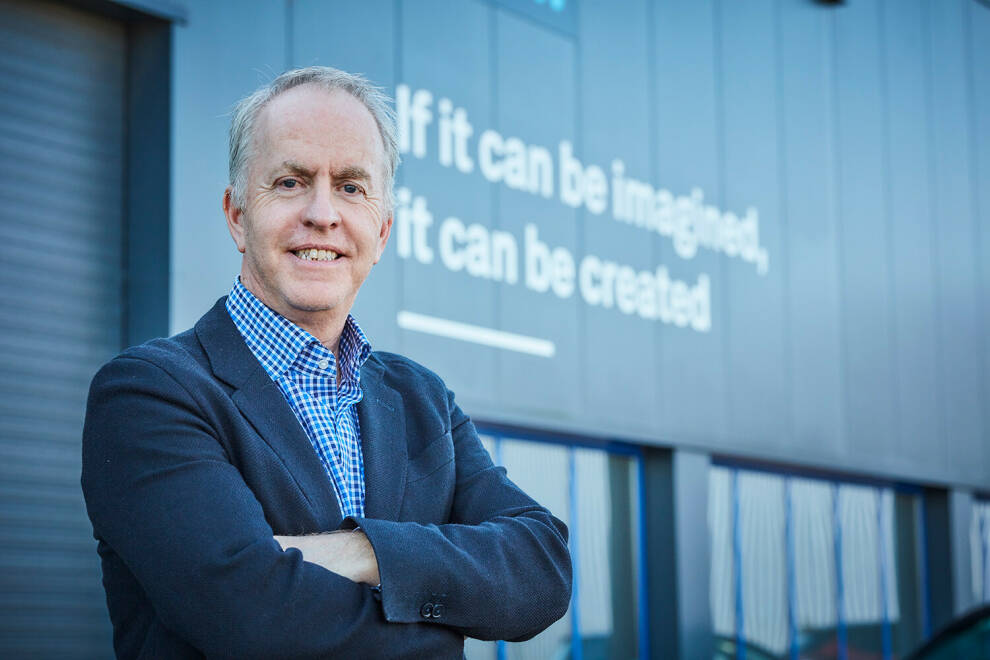Corporate Sustainability Reporting Directive (CSRD)
The EU Green taxonomy for sustainable activities is a classification system designed to clarify which investments are environmentally sustainable, in the context of the European Green Deal. The aim of the taxonomy is to prevent greenwashing and to help investors make better choices about a company’s ESG credentials. EU Taxonomy requires companies like Stahl to disclose if its activities are eligible (could be sustainable) and aligned (are sustainable). For 2021 Stahl disclosed its eligibility based on the sales turnover of its waterbased (low carbon) products. The alignment of these products will be disclosed in the Stahl chapter of the 2022 Wendel Universal Registration Document. Stahl is not yet required to report in accordance with the EU taxonomy in its annual accounts.

Julia Creasey
Sustainability Director
at Croda

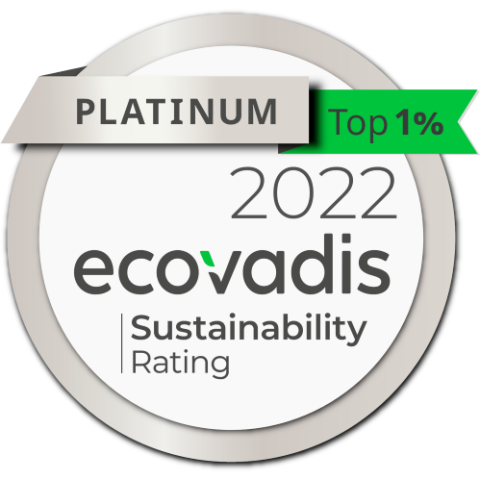
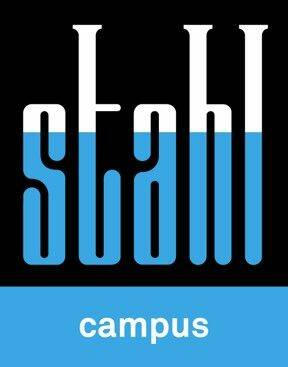
> Industry governance
> Stahl Campus®
> EcoVadis Platinum medal
> CSRD and EU Green Taxonomy
> Responsible supply chain (interview with our supplier Croda)
Stahl's ESG Team
Stahl Compliance Report 2022
We undertake detailed life cycle assessments (LCAs) for our products to better understand their environmental impact over the product life cycle. These assessments provide important data for our Scope 3 emissions calculations, as well as offering our customers a clear understanding of how the solutions they source from Stahl impact their own environmental footprint.
In early 2022, the position of Life Cycle Assessment Manager was added to Stahl's ESG team to support the increased demand for LCA data from our customers. This new role follows the 2021 addition of a new team member to manage supply chain transparency and chain of custody for Stahl’s non-fossil-based products.
Strengthening our LCA approach has allowed us to accelerate toward our ESG Roadmap target of completing Life cycle assessments for 300 Stahl products by 2030. Among other key actions taken during the year, we established our own, superior, method for raw material modeling. We also began the process of introducing a semi-automated system for undertaking assessments, an important step that will help us to calculate GHG emissions more accurately and provide better-quality LCA data to our customers.
By the end of 2022, Stahl had completed LCAs for 160 strategic products, achieving our target for the year. We expect to reach our 2030 goal of 300 products with LCAs significantly ahead of time, by the end of 2023.
In 2022, Stahl received an EcoVadis Platinum rating, placing us among the top 1% of companies assessed by EcoVadis worldwide. By achieving the highest possible level of rating, Platinum, we have exceeded one of the targets of Stahl’s ESG Roadmap to 2030, which was to achieve a Gold rating by 2023.
This achievement is the result of a multi-year process at Stahl: since achieving our first rating, Bronze, in 2015, we have improved the way we approach and deliver our annual EcoVadis assessment. A key measure has been the expansion of the dedicated EcoVadis team within Stahl, which is tasked with overseeing the assessment process. From three people working on the EcoVadis assessment each year in 2017, the team has grown to seven colleagues from across different areas within Stahl: procurement, human resources, safety, legal, product stewardship, and ESG. These professionals contribute their specific expertise to help complete the assessment. With additional support from the leadership teams, we have been able to devote more time to gathering evidence and improving the quality of our response to EcoVadis.
In addition to the efforts taken to improve our assessment process, our move from a Gold to a Platinum rating in 2022 reflects the various actions Stahl took over the previous year to strengthen our ESG approach. These include:
Introducing Stahl’s Human Rights Policy
Launching our Global Employee Satisfaction Survey
Extending our emissions reduction targets to include Scope 3 emissions
For each of the defined areas of risk, the plan defines the gross risk as applicable to Stahl and its stakeholders, together with a set of mitigation actions to address these risks. The plan also sets out the steps Stahl is taking to monitor the policies and activities in place and measure their effectiveness. The Stahl Vigilance Team meets periodically to monitor the effectiveness of the Vigilance plan.
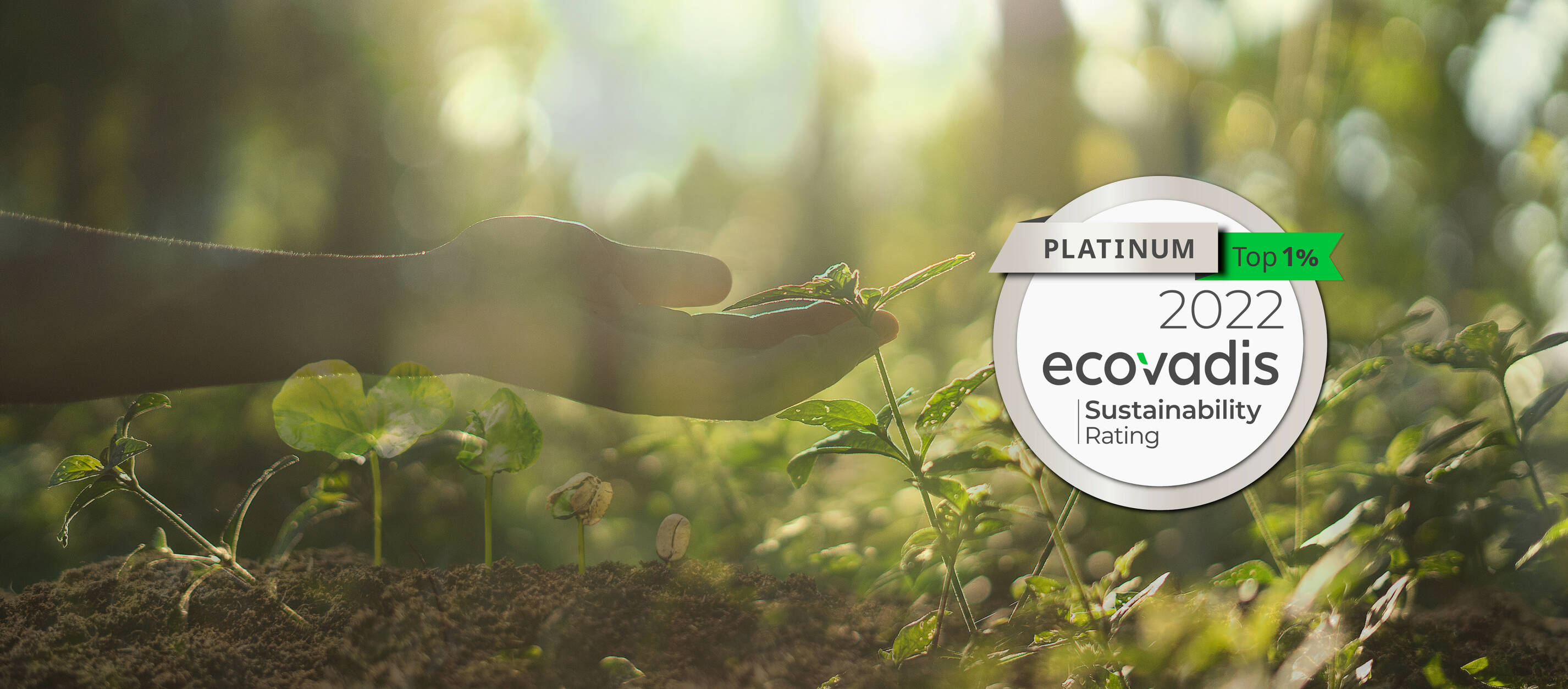
Coinciding with the launch of our Scope 3 upstream GHG emissions targets, in 2022, Stahl established the Scope 3 Reduction Project to drive progress toward our greenhouse gas emissions-reduction targets. The project is overseen by a series of working groups, which are responsible for reporting the impact of replacing specific categories of raw materials used in our processes with lower-carbon alternatives. These groups are:
Polyols, acrylics and isocyanates
Solvents
Packaging
Wet-end
The working groups are overseen by a Steering Committee. The committee is composed of the directors of Stahl’s business units (Polymers, Performance Coatings, and Leather), and the company’s Procurement Director and Group Director for ESG. In each case, the working group is tasked with helping the Steering Committee make the final decision on which new raw materials Stahl should introduce, based on their impact on our Scope 3 emissions. The groups are also asked to report on new proposals that could lead to Scope 3 emission reductions.
Each group comprises representatives from various parts of the Stahl organization, who offer specific skills and competencies that support the group’s overall goals:
Open innovation – Representative tasked with monitoring and reporting on available solutions, and considering mid-term and long-term alternatives.
Procurement – Representative tasked with monitoring new raw materials available from Stahl’s supplier database and informing the other group members.
R&D – Representative tasked with reporting close-to-market (short-term) solutions that demonstrate a track record of success at an R&D level.
ESG Team – Representative tasked with ensuring the collection of ESG data and accounting for carbon emissions.
Business – Representative tasked with assessing the impact of raw material changes at the P-code level and aligning changes with Stahl’s short- and long-term commercial strategies.
In addition, the members of the working groups are each responsible for collecting relevant information (including ESG data, procurement data, and R&D data) to build a business case to support the transition from specific raw materials to lower-impact feedstocks. The findings from the respective group members are discussed through regular working group meetings.
The groups also carry out impact assessments and procurement risk assessments to support the Steering Committee in their final decision-making.
Topics addressed in this section:
> Stahl governance
> ESG Team
> Ethics and compliance
> Stahl Compliance Report 2022
> Corruption (Sapin II)
Building on our EcoVadis achievement
The EcoVadis process is a key marker on our ESG journey and our ambition to contribute to a more responsible chemical value chain. As part of our ESG Roadmap to 2030, we have set a target for all of our EcoVadis-rated suppliers to achieve a minimum score of 47/100. We are taking proactive steps to achieve this, including working with our suppliers to help them adopt more responsible and sustainable practices, such as the transition to renewable feedstocks. This goes hand in hand with our increased focus on supply chain transparency.
At the same time, we are committed to maintaining the high standards we have set for ourselves in terms of our EcoVadis assessment process and ranking. Our focus is on using the process to identify and address potential areas for improvement within Stahl, and to ensure that we make progress against the targets we have set for ourselves, such as our greenhouse gas emissions reduction target. We will also address new criteria as they are added to the EcoVadis assessment process, such as our impact on biodiversity.


Back to overview

Scroll
down
An interview with our supply chain partner, Croda
At Stahl, we are in regular dialogue with our upstream value chain partners, as we work to build a more transparent and responsible supply chain. One of our longest-serving suppliers of raw materials is Croda, a UK-based chemicals company. In this interview, Croda’s Group Sustainability Director, Julia Creasey, discusses the company’s approach to supply chain transparency and how this contributes to Stahl’s responsible supply chain ambitions.
How are you working with your supply chain to meet your sustainability goals?
Sustainability is a top priority at Croda. We see the 2020s as a decade of climate action. At the beginning of 2020, we launched our commitment to being climate-, land-, and people-positive, and set 10-year targets in line with the UN Sustainable Development Goals.
There are targets that we simply cannot achieve without the collaboration of our supply chain. To reduce our Scope 3 emissions, we are working with our downstream partners, such as Stahl, but also our own suppliers.
How important is supply chain transparency to this ambition?
83% of Croda’s upstream Scope 3 emissions are linked to purchased goods and services, namely the raw materials that are used to make our products. The actions our suppliers take to reduce their emissions therefore directly influence Croda’s efforts to reduce its Scope 3 emissions, and then our customers’ targets in turn.
To make progress with our emissions targets, and support our downstream partners like Stahl, we need to collect solid primary data from these suppliers as the starting point for our emission-reduction efforts.
If data is the foundation for transparency, what is your process for collecting it?
We have transparency units devoted to engaging with our suppliers and gathering data in a reliable and consistent way. Our aim is to ensure these partner companies follow our guidance and adhere to the standards we have set, and that ultimately the data we receive is consistent.
For now, our focus is firmly on encouraging our suppliers to take steps to reduce their carbon footprint. However, as the quality of the data we obtain from our supply chain improves, so will our overall visibility. Going forward, we will be able to make purchasing decisions based on suppliers that have a lower environmental footprint and are able to be more transparent with us.
How does supplier data support your efforts to reduce your own environmental impact at Croda?
With greater oversight of our upstream processes, we can begin undertaking life cycle assessments (LCAs) for our own products. We have set a target to complete cradle-to-grave LCAs for 100 of our products by the end of the decade. This is an ambitious target, given the complexity of these studies. However, in 2022 we completed six assessments, up from one in 2021, and have added additional resources to the team to support this target.
We use an internally developed LCA tool, which is aligned with ISO standard methodologies. The process is already generating valuable insights: we can see where the main hotspots are in terms of our emissions. We can also see where the biggest gains can be achieved, particularly in terms of transitioning from traditional fossil-based raw materials to bio-based alternatives.
As well as developing a better understanding of our own sustainability ambitions, we are passing on the insights from these assessments to our customers. In doing so, we are helping them adjust their behavior patterns; for example, by encouraging them to switch to more responsible products.
Everything is connected: with greater transparency from our own suppliers, we are not only able to reduce our own, direct environmental impact; we are also taking steps to reduce our downstream emissions and improve our impact far along the value chain.
Our approach to governance
Our approach to governance begins with listening to our stakeholders to understand their expectations of us and the issues that matter to them. From here, we can define the topics that are “material” from a ESG perspective to our business and address them through our strategy and ESG approach. In 2022, we established a project team to understand the Corporate Sustainability Reporting Directive (CSRD), a forthcoming EU regulation. The CSRD explains the concept of a double materiality assessment. Double materiality now is assessing both the financial and ESG impact of the company to the world and from the world to the company.
In addition to governing our own operations, we strive to ensure a transparent, well-governed supply chain. By voluntarily participating in sustainability rating programs such as EcoVadis, we not only monitor our own ESG performance, but also ensure that our partners meet our expectations regarding issues such as environmental impact, health and safety, and human rights.
We also seek to promote good industry governance by working closely with our value chain partners and industry peers. Stahl is an active member of industry initiatives such as the Renewable Carbon Initiative (RCI) and the ZDHC Foundation. These collaborations provide a platform for Stahl to amplify its impact, as we work to create a better future for people and the planet.
At Stahl, we have a responsibility to our stakeholders to manage our business responsibly – as well as profitably – and to demonstrate business practices that are consistently ethical, transparent, and accountable. We believe this is the foundation of good governance.
Transforming our leadership for a sustainable future
Our governance model describes the legal management and decision-making structure of a company. Stahl Group has a matrix organization with a strong local presence and a regional set up and a centralized management located in the operational headquarters of Stahl Group, which is Stahl Holdings BV in the Netherlands. Stahl Group S.A. is the shareholder of Stahl Parent BV and Stahl Parent BV is the direct shareholder of Stahl Holdings BV as per the end of 2022.
Stahl’s governance structure:
The board of Stahl Parent BV is a one-tier board and responsible for the general affairs and strategy of Stahl Parent BV and its direct or indirect subsidiaries. The board is responsible for the formation and implementation of the corporate governance organization of the Stahl Group, including its management and reporting structure in accordance with the articles of associations of the relevant group companies and is responsible for ensuring compliance with such rules.
The Stahl Leadership Team (formally known as Stahl Management Team) is responsible for the day-to-day business management. Depending on the function and task, the Stahl Group employees report to the CEO, CFO, COO, the local and/or regional directors and/or to the Group Directors. An overview of the current Leadership Team is also available on our website:
Chief Executive Officer (CEO)
Chief Financial Officer (CFO)
Chief Operating Officer (COO)
Chief Innovation and Development Officer
Group Director Sustainability and Marketing
Group Director Leather Chemicals
Group Director Performance Coatings & Polymers
Group Director R&D and Technical Application
Group Director Human Resources
Regional management: the Stahl Group has four regional directors, for Greater China and East Asia Pacific, India/Bangladesh, North America, and Latin America. Europe and Africa are managed from the group's operational headquarters in the Netherlands.
The Extended Leadership team, whose members represent the Stahl Leadership Team and all key senior functions of the Stahl Group, such as Divisions, Regions and Group Support Services (e.g. Group Finance, Sustainability, HR, Marketing, Communication, Tax, Legal, Compliance, IT) meet in general on a quarterly basis. In 2022 the Extended Leadership team met (partially virtually) four times.
The Capex Committee, which is responsible for the review and authorization of capital expenditure requests.
As of 2020, Stahl employs a full-time internal auditor, who reports directly to the Audit Committee.
As per December 31, 2022, the Stahl Board of Directors consisted of:
Two executive members: the CEO and CFO of the Stahl Group;
Six non-executive members – representatives of the Wendel Group and BASF Group (representing the major shareholders of the Stahl Group); and
Three non-executive members, two independent members and the former CEO.
Stahl Parent B.V. has an Audit Committee and a Nomination/Remuneration Committee. The Internal Auditor of Stahl reports to the Audit Committee. The Audit Committee meets four times per year and discusses topics relating to internal and external reporting and corporate governance.
Stahl’s ESG team meets every two weeks and continuously engages with employees from finance, legal counsel, sales teams, product managers, researchers, product stewardship, and operations to monitor the implementation of its strategy and to discuss progress on new initiatives related to ESG performance. The team meets with the Wendel ESG team on a quarterly basis to review progress against Stahl’s ESG Roadmap targets.
As per December 31, 2022, Stahl’s ESG team includes:
Group Director of ESG (located in Spain)
ESG Performance Manager (located in the Netherlands)
Environmental Impact Manager (located in the Netherlands)
Supply Chain Transparency Manager (located in Spain)
Life Cycle Assessment (LCA) Manager (located in Italy)
Four Regional Stahl Campus® managers (Europe, Americas, India, and China)
Ethics and compliance
Stahl’s strategic direction – and therefore its policies – is influenced by and aligned with the UN Sustainable Development Goals (SDGs), the Ten Principles of the UN Global Compact, and the OECD Guidelines for Multinational Enterprises. We have policies in place on human rights, labor, the environment, and anti-corruption, to ensure that we mitigate any risks that may arise.
All business partners must abide by applicable anti-corruption laws and regulations of the countries in which they operate.
Code of conduct for business partners
Stahl’s Whistleblower policy allows employees to report suspicious behavior, while offering the necessary guaranteed protection.
Whistleblower policy
We aim to have LCA data for 300 products by 2030. We are on track to meet the target, with 160 available by the end of 2022.
Assessing the impact of our products
Our main policies
Outlines what is expected of every person who works for Stahl.
Code of conduct for employees
Employee engagement is critical to compliant and ethical operations. Our 2030 goal is for 100% of Stahl employees to be trained in the elimination of corruption and bribery in all its forms. In 2022, 98% of all employees worldwide received anti-bribery and anti-corruption training.
In 2022, there were eight whistleblowing cases. All cases were investigated and resolved.
More detailed information is provided in the Stahl Compliance Report, which is available on our website. The report focuses on: a) Local laws and regulations b) SAPIN 2 (anti-corruption) legislation c) Sanctions and embargoes d) Safety, health, and environment (“SHE”) / Process safety e) Compliance policies / Whistleblower process f) Business Partner Compliance Procedure g) External business rating on sustainability and ethics h) Modern Slavery i) Diversity j) Compliance training, and k) Privacy rules.
A list of all our policies is available on our website.
French SAPIN II Law on corruption
The French anti-corruption law, SAPIN II, requires certain companies to implement measures to prevent and detect corruption and influence-peddling offenses committed in France and abroad. Stahl is subject to this law and has a compliance program in place to implement the required measures. Stahl applies a zero-tolerance policy with regard to corruption.
Key measures:
Code of conduct – all employees must sign this
Alert mechanism – Stahl’s whistleblowing policy
Annual corruption risk mapping
Third-party due diligence procedures – taking a risk-based approach
Internal and external accounting control procedures – including anti-corruption
Training program – all Stahl employees follow annual anti-corruption e-learning training
Disciplinary procedure for non-compliant employees
Internal monitoring and assessment system
Working with our partners to strengthen industry governance
Our industry collaborations and partnerships amplify our positive impact and allow us to touch more lives as part of a responsible value chain.
Stahl is a founding member of the Renewable Carbon Initiative (RCI), which aims to accelerate the transition to renewable feedstocks within the chemical value chain. In 2022, Stahl participated in several RCI working group activities, including those focused on renewable carbon content labeling and life cycle assessments. We also contributed to EU policy papers on renewable feedstocks.

During the year, we expanded our network by joining CLIB, an open innovation cluster of biotechnology stakeholders. Joining the network will help advance Stahl’s open innovation ambitions: CLIB is committed to providing networking opportunities for its members across different industries and sectors with the aim of using biotechnology to promote sustainability. As part of the cluster, we aim to connect with like-minded contacts and partners to explore opportunities to increase the use of bio-based and bio-derived solutions in our chemistries, products, and applications. In turn, we hope to add value to other members of the network by providing a route to market for biotechnology-driven solutions through our extensive range of industrial products and applications.
Meanwhile, Stahl continued to be an active participant in ZDHC, a multi-stakeholder initiative to eliminate unwanted substances from the fashion and footwear supply chain. This follows the election of Stahl’s Group Director of ESG to the ZDHC Board of Directors in 2021, becoming one of only two chemical industry representatives on the Board.
Stahl is also an active member of the Leather Working Group (LWG), serving on the LWG Executive Committee as a board member from 2017 to 2021.
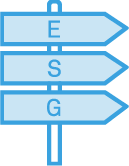
ESG roadmap to 2030
2023: Top 10 suppliers: minimum rating of 60/100 in EcoVadis (based on spend/€)
2030: All suppliers EcoVadis-rated: minimum rating of 47/100 (based on spend/€)
Developing the next generation of leather professionals with Stahl Campus®
In 2022, more than 780 professionals from approximately 165 organizations (including customers, universities, brands, and OEMs), attended Stahl Campus® training courses around the world. With the lifting of COVID-related restrictions on travel and public gatherings, we were able to deliver many of our courses in person at our facilities. These on-site training sessions were supplemented by online webinars.
A flagship Stahl Campus® course is the Automotive Leather Finishing Postgraduate Certificate course, which was finalized in 2021 for some students and postponed into 2022 for those unable to attend due to travel restrictions. The six-week course, held at Stahl Campus® Mexico, was developed in collaboration with the University of Northampton (UoN), with students receiving a postgraduate certificate from the UoN upon completion.
A third postgraduate certificate course has been developed in collaboration with the university and will be hosted by Stahl Campus® Europe in Waalwijk, the Netherlands. The first two-week module was held in January 2023.

Back
to top

Back to overview
Monitoring our supply chain
At Stahl, we monitor and manage potential risks related to human rights and modern slavery through a combination of policies, training, and strong governance. We require all employees to help ensure that these policies are applied throughout our organization and supply chain.
With regard to human rights, we employ the following mechanisms to prevent potential risks:
Modern slavery
Stahl condemns modern slavery and child labor and does not participate in the trafficking, recruitment, or receipt of any persons, by means of threat or abuse of power. By behaving ethically and honestly with all of its partners, Stahl is committed to ensuring that modern slavery does not occur in its supply chain or elsewhere, and to only doing business with organizations that uphold similar principles. Stahl’s Statement on Modern Slavery can be found on our website.
Accounting
Stahl has specific accounting procedures to reinforce anti-corruption vigilance for all Stahl locations around the world. This document covers best practices to be adopted for the prevention and detection of corruption regarding finance and payments.
Auditing
The scope of Stahl’s due diligence auditing of suppliers is amplified significantly through the EcoVadis rating system, which is already used throughout much of the chemical industry supply chain. In 2022, 83% of Stahl’s total spend on raw materials was supplied by EcoVadis-rated suppliers.
Whistleblower policy
The Stahl whistleblower policy establishes clear rules that encourage employees to report suspicious behavior that may conflict with the Code of Conduct, with the necessary protection guarantees for whistleblowers.
Human rights
The Stahl Business Partner Code of Conduct ensures that business partners conduct their activities in a manner that respects human rights, as per the United Nations Guiding Principles on Business and Human Rights.
Training
1. Risks linked to human rights and the societal impact of Stahl’s activities. These include child labor and forced labor (modern slavery), as well as wider workforce-related risks such as those relating to (a lack of) diversity and inclusion.
2. Risks linked to the health and safety of our employees and (sub) contractors. These include occupational injuries and deaths, occupational toxics and hazards, failure to safeguard the health and safety of end-consumers, and industrial accidents.
3. Risks linked to the protection of the environment. These include pollution, natural resource depletion, GHG emission, biodiversity loss, and risks related to a lack of chemical compliance.
Stahl’s Vigilance Team monitors and takes action to mitigate human rights risks under the French Duty of Care Law (2017). Members of Stahl’s senior management are part of the team, including the company’s CFO, COO, and Director of Human Resources.
In 2022, Stahl updated its Vigilance Plan, which identifies and aims to prevent the risk of serious violations of human rights and fundamental freedoms as well as harm to human health, safety and the environment. The Vigilance Plan focuses on three identified key duty of care risks associated with Stahl's activities and the appropriate prevention of these risks through mitigation measures and the monitoring of the effectiveness of such measures. These risks are:
Duty of Care: Vigilance plan and Team
We run mandatory e-learning training programs for all employees, focused on human rights and the prevention of corruption and modern slavery. In this training, special attention is given to awareness and red flags that can indicate non-compliant behavior in the company and the supply chain. Voluntary e-learnings are also provided on topics including diversity, communication across generations, and how to lead a generationally mixed team.
Engaging with our partners on supply chain transparency


Back
to top
How are you working with your supply chain to meet your sustainability goals?
Sustainability is a top priority at Croda. We see the 2020s as a decade of climate action. At the beginning of 2020, we launched our commitment to being climate-, land-, and people-positive, and set 10-year targets in line with the UN Sustainable Development Goals.
There are targets that we simply cannot achieve without the collaboration of our supply chain. To reduce our Scope 3 emissions, we are working with our downstream partners, such as Stahl, but also our own suppliers.
How important is supply chain transparency to this ambition?
83% of Croda’s upstream Scope 3 emissions are linked to purchased goods and services, namely the raw materials that are used to make our products. The actions our suppliers take to reduce their emissions therefore directly influence Croda’s efforts to reduce its Scope 3 emissions, and then our customers’ targets in turn.
To make progress with our emissions targets, and support our downstream partners like Stahl, we need to collect solid primary data from these suppliers as the starting point for our emission-reduction efforts.
If data is the foundation for transparency, what is your process for collecting it?
We have transparency units devoted to engaging with our suppliers and gathering data in a reliable and consistent way. Our aim is to ensure these partner companies follow our guidance and adhere to the standards we have set, and that ultimately the data we receive is consistent.
For now, our focus is firmly on encouraging our suppliers to take steps to reduce their carbon footprint. However, as the quality of the data we obtain from our supply chain improves, so will our overall visibility. Going forward, we will be able to make purchasing decisions based on suppliers that have a lower environmental footprint and are able to be more transparent with us.
How does supplier data support your efforts to reduce your own environmental impact at Croda?
With greater oversight of our upstream processes, we can begin undertaking life cycle assessments (LCAs) for our own products. We have set a target to complete cradle-to-grave LCAs for 100 of our products by the end of the decade. This is an ambitious target, given the complexity of these studies. However, in 2022 we completed six assessments, up from one in 2021, and have added additional resources to the team to support this target.
We use an internally developed LCA tool, which is aligned with ISO standard methodologies. The process is already generating valuable insights: we can see where the main hotspots are in terms of our emissions. We can also see where the biggest gains can be achieved, particularly in terms of transitioning from traditional fossil-based raw materials to bio-based alternatives.
As well as developing a better understanding of our own sustainability ambitions, we are passing on the insights from these assessments to our customers. In doing so, we are helping them adjust their behavior patterns; for example, by encouraging them to switch to more responsible products.
Everything is connected: with greater transparency from our own suppliers, we are not only able to reduce our own, direct environmental impact; we are also taking steps to reduce our downstream emissions and improve our impact far along the value chain.
Corporate Sustainability Reporting Directive (CSRD)
The EU Green taxonomy for sustainable activities is a classification system designed to clarify which investments are environmentally sustainable, in the context of the European Green Deal. The aim of the taxonomy is to prevent greenwashing and to help investors make better choices about a company’s ESG credentials. EU Taxonomy requires companies like Stahl to disclose if its activities are eligible (could be sustainable) and aligned (are sustainable). For 2021 Stahl disclosed its eligibility based on the sales turnover of its waterbased (low carbon) products. The alignment of these products will be disclosed in the Stahl chapter of the 2022 Wendel Universal Registration Document. Stahl is not yet required to report in accordance with the EU taxonomy in its annual accounts.

Julia Creasey
Sustainability Director at Croda
We undertake detailed life cycle assessments (LCAs) for our products to better understand their environmental impact over the product life cycle. These assessments provide important data for our Scope 3 emissions calculations, as well as offering our customers a clear understanding of how the solutions they source from Stahl impact their own environmental footprint.
In early 2022, the position of Life Cycle Assessment Manager was added to Stahl's ESG team to support the increased demand for LCA data from our customers. This new role follows the 2021 addition of a new team member to manage supply chain transparency and chain of custody for Stahl’s non-fossil-based products.
Strengthening our LCA approach has allowed us to accelerate toward our ESG Roadmap target of completing Life cycle assessments for 300 Stahl products by 2030. Among other key actions taken during the year, we established our own, superior, method for raw material modeling. We also began the process of introducing a semi-automated system for undertaking assessments, an important step that will help us to calculate GHG emissions more accurately and provide better-quality LCA data to our customers.
By the end of 2022, Stahl had completed LCAs for 160 strategic products, achieving our target for the year. We expect to reach our 2030 goal of 300 products with LCAs significantly ahead of time, by the end of 2023.
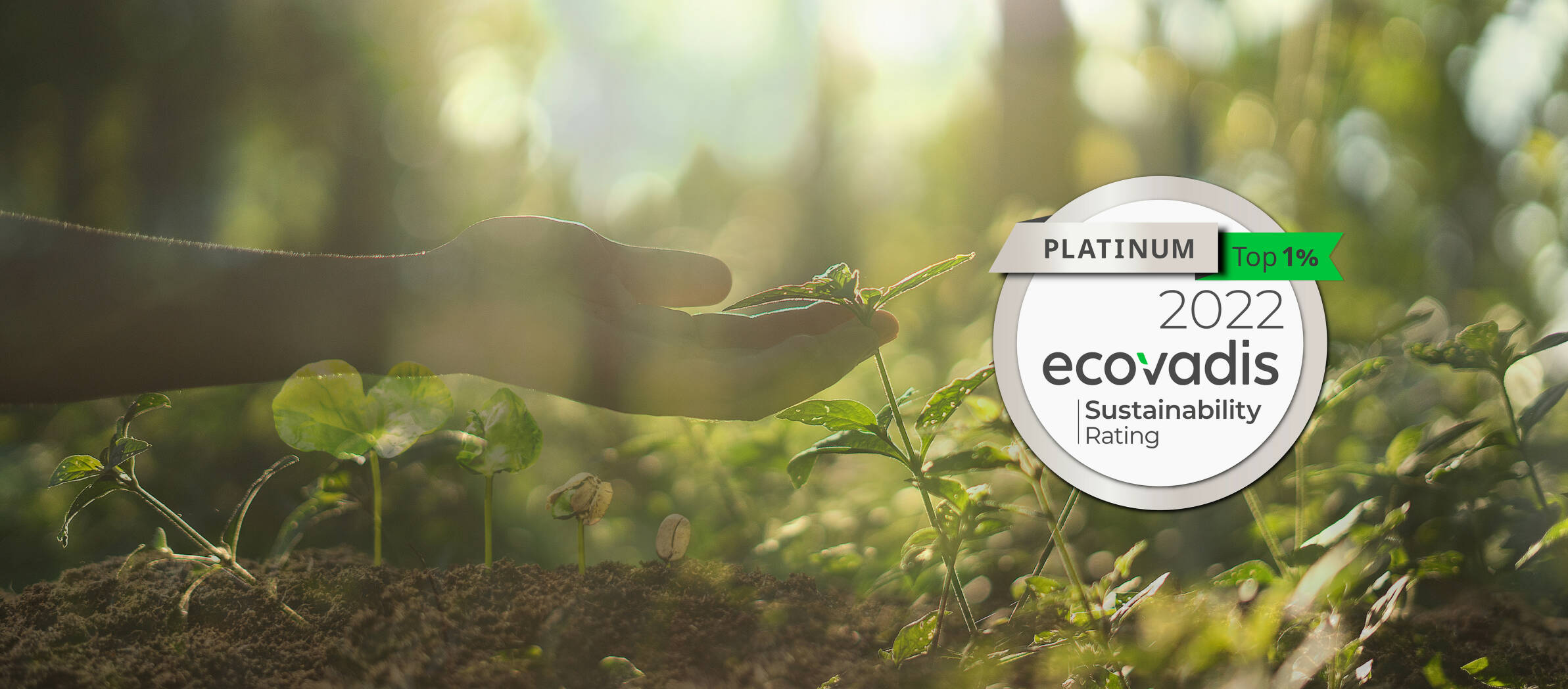
Coinciding with the launch of our Scope 3 upstream GHG emissions targets, in 2022, Stahl established the Scope 3 Reduction Project to drive progress toward our greenhouse gas emissions-reduction targets. The project is overseen by a series of working groups, which are responsible for reporting the impact of replacing specific categories of raw materials used in our processes with lower-carbon alternatives. These groups are:
Polyols, acrylics and isocyanates
Solvents
Packaging
Wet-end
The working groups are overseen by a Steering Committee. The committee is composed of the directors of Stahl’s business units (Polymers, Performance Coatings, and Leather), and the company’s Procurement Director and Group Director for ESG. In each case, the working group is tasked with helping the Steering Committee make the final decision on which new raw materials Stahl should introduce, based on their impact on our Scope 3 emissions. The groups are also asked to report on new proposals that could lead to Scope 3 emission reductions.
Each group comprises representatives from various parts of the Stahl organization, who offer specific skills and competencies that support the group’s overall goals:
Open innovation – Representative tasked with monitoring and reporting on available solutions, and considering mid-term and long-term alternatives.
Procurement – Representative tasked with monitoring new raw materials available from Stahl’s supplier database and informing the other group members.
R&D – Representative tasked with reporting close-to-market (short-term) solutions that demonstrate a track record of success at an R&D level.
ESG Team – Representative tasked with ensuring the collection of ESG data and accounting for carbon emissions.
Business – Representative tasked with assessing the impact of raw material changes at the P-code level and aligning changes with Stahl’s short- and long-term commercial strategies.
In addition, the members of the working groups are each responsible for collecting relevant information (including ESG data, procurement data, and R&D data) to build a business case to support the transition from specific raw materials to lower-impact feedstocks. The findings from the respective group members are discussed through regular working group meetings.
The groups also carry out impact assessments and procurement risk assessments to support the Steering Committee in their final decision-making.
In 2022, Stahl received an EcoVadis Platinum rating, placing us among the top 1% of companies assessed by EcoVadis worldwide. By achieving the highest possible level of rating, Platinum, we have exceeded one of the targets of Stahl’s ESG Roadmap to 2030, which was to achieve a Gold rating by 2023.
This achievement is the result of a multi-year process at Stahl: since achieving our first rating, Bronze, in 2015, we have improved the way we approach and deliver our annual EcoVadis assessment. A key measure has been the expansion of the dedicated EcoVadis team within Stahl, which is tasked with overseeing the assessment process. From three people working on the EcoVadis assessment each year in 2017, the team has grown to seven colleagues from across different areas within Stahl: procurement, human resources, safety, legal, product stewardship, and ESG. These professionals contribute their specific expertise to help complete the assessment. With additional support from the leadership teams, we have been able to devote more time to gathering evidence and improving the quality of our response to EcoVadis.
In addition to the efforts taken to improve our assessment process, our move from a Gold to a Platinum rating in 2022 reflects the various actions Stahl took over the previous year to strengthen our ESG approach. These include:
Introducing Stahl’s Human Rights Policy
Launching our Global Employee Satisfaction Survey
Extending our emissions reduction targets to include Scope 3 emissions
Building on our EcoVadis achievement
The EcoVadis process is a key marker on our ESG journey and our ambition to contribute to a more responsible chemical value chain. As part of our ESG Roadmap to 2030, we have set a target for all of our EcoVadis-rated suppliers to achieve a minimum score of 47/100. We are taking proactive steps to achieve this, including working with our suppliers to help them adopt more responsible and sustainable practices, such as the transition to renewable feedstocks. This goes hand in hand with our increased focus on supply chain transparency.
At the same time, we are committed to maintaining the high standards we have set for ourselves in terms of our EcoVadis assessment process and ranking. Our focus is on using the process to identify and address potential areas for improvement within Stahl, and to ensure that we make progress against the targets we have set for ourselves, such as our greenhouse gas emissions reduction target. We will also address new criteria as they are added to the EcoVadis assessment process, such as our impact on biodiversity.
During the year, we expanded our network by joining CLIB, an open innovation cluster of biotechnology stakeholders. Joining the network will help advance Stahl’s open innovation ambitions: CLIB is committed to providing networking opportunities for its members across different industries and sectors with the aim of using biotechnology to promote sustainability. As part of the cluster, we aim to connect with like-minded contacts and partners to explore opportunities to increase the use of bio-based and bio-derived solutions in our chemistries, products, and applications. In turn, we hope to add value to other members of the network by providing a route to market for biotechnology-driven solutions through our extensive range of industrial products and applications.
Meanwhile, Stahl continued to be an active participant in ZDHC, a multi-stakeholder initiative to eliminate unwanted substances from the fashion and footwear supply chain. This follows the election of Stahl’s Group Director of ESG to the ZDHC Board of Directors in 2021, becoming one of only two chemical industry representatives on the Board.
Stahl is also an active member of the Leather Working Group (LWG), serving on the LWG Executive Committee as a board member from 2017 to 2021.
With regard to human rights, we employ the following mechanisms to prevent potential risks:
Monitoring our supply chain
At Stahl, we monitor and manage potential risks related to human rights and modern slavery through a combination of policies, training, and strong governance. We require all employees to help ensure that these policies are applied throughout our organization and supply chain.
Engaging with our partners on supply chain transparency

Whistleblower policy
The Stahl whistleblower policy establishes clear rules that encourage employees to report suspicious behavior that may conflict with the Code of Conduct, with the necessary protection guarantees for whistleblowers.
Human rights
The Stahl Business Partner Code of Conduct ensures that business partners conduct their activities in a manner that respects human rights, as per the United Nations Guiding Principles on Business and Human Rights.
Training
1. Risks linked to human rights and the societal impact of Stahl’s activities. These include child labor and forced labor (modern slavery), as well as wider workforce-related risks such as those relating to (a lack of) diversity and inclusion.
2. Risks linked to the health and safety of our employees and (sub) contractors. These include occupational injuries and deaths, occupational toxics and hazards, failure to safeguard the health and safety of end-consumers, and industrial accidents.
3. Risks linked to the protection of the environment. These include pollution, natural resource depletion, GHG emission, biodiversity loss, and risks related to a lack of chemical compliance.
Stahl’s Vigilance Team monitors and takes action to mitigate human rights risks under the French Duty of Care Law (2017). Members of Stahl’s senior management are part of the team, including the company’s CFO, COO, and Director of Human Resources.
In 2022, Stahl updated its Vigilance Plan, which identifies and aims to prevent the risk of serious violations of human rights and fundamental freedoms as well as harm to human health, safety and the environment. The Vigilance Plan focuses on three identified key duty of care risks associated with Stahl's activities and the appropriate prevention of these risks through mitigation measures and the monitoring of the effectiveness of such measures. These risks are:
Duty of Care: Vigilance plan and Team
We run mandatory e-learning training programs for all employees, focused on human rights and the prevention of corruption and modern slavery. In this training, special attention is given to awareness and red flags that can indicate non-compliant behavior in the company and the supply chain. Voluntary e-learnings are also provided on topics including diversity, communication across generations, and how to lead a generationally mixed team.
Stahl’s ESG team meets every two weeks and continuously engages with employees from finance, legal counsel, sales teams, product managers, researchers, product stewardship, and operations to monitor the implementation of its strategy and to discuss progress on new initiatives related to ESG performance. The team meets with the Wendel ESG team on a quarterly basis to review progress against Stahl’s ESG Roadmap targets.
As per December 31, 2022, Stahl’s ESG team includes:
Group Director of ESG (located in Spain)
ESG Performance Manager (located in the Netherlands)
Environmental Impact Manager (located in the Netherlands)
Supply Chain Transparency Manager (located in Spain)
Life Cycle Assessment (LCA) Manager (located in Italy)
Four Regional Stahl Campus® managers (Europe, Americas, India, and China)
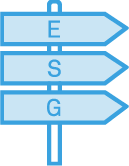
ESG roadmap to 2030
2023: Top 10 suppliers: minimum rating of 60/100 in EcoVadis
(based on spend/€)
2030: Allsuppliers
EcoVadis-rated: minimum rating of 47/100 (based on spend/€)
Developing the next generation of leather professionals with Stahl Campus®
In 2022, more than 780 professionals from approximately 165 organizations (including customers, universities, brands, and OEMs), attended Stahl Campus® training courses around the world. With the lifting of COVID-related restrictions on travel and public gatherings, we were able to deliver many of our courses in person at our facilities. These on-site training sessions were supplemented by online webinars.
A flagship Stahl Campus® course is the Automotive Leather Finishing Postgraduate Certificate course, which was finalized in 2021 for some students and postponed into 2022 for those unable to attend due to travel restrictions. The six-week course, held at Stahl Campus® Mexico, was developed in collaboration with the University of Northampton (UoN), with students receiving a postgraduate certificate from the UoN upon completion.
A third postgraduate certificate course has been developed in collaboration with the university and will be hosted by Stahl Campus® Europe in Waalwijk, the Netherlands. The first two-week module was held in January 2023.
Auditing
The scope of Stahl’s due diligence auditing of suppliers is amplified significantly through the EcoVadis rating system, which is already used throughout much of the chemical industry supply chain. In 2022, 83% of Stahl’s total spend on raw materials was supplied by EcoVadis-rated suppliers.
An interview with our supply chain partner, Croda
At Stahl, we are in regular dialogue with our upstream value chain partners, as we work to build a more transparent and responsible supply chain. One of our longest-serving suppliers of raw materials is Croda, a UK-based chemicals company. In this interview, Croda’s Group Sustainability Director, Julia Creasey, discusses the company’s approach to supply chain transparency and how this contributes to Stahl’s responsible supply chain ambitions.
For each of the defined areas of risk, the plan defines the gross risk as applicable to Stahl and its stakeholders, together with a set of mitigation actions to address these risks. The plan also sets out the steps Stahl is taking to monitor the policies and activities in place and measure their effectiveness. The Stahl Vigilance Team meets periodically to monitor the effectiveness of the Vigilance plan.
Ethics and compliance
Stahl’s strategic direction – and therefore its policies – is influenced by and aligned with the UN Sustainable Development Goals (SDGs), the Ten Principles of the UN Global Compact, and the OECD Guidelines for Multinational Enterprises. We have policies in place on human rights, labor, the environment, and anti-corruption, to ensure that we mitigate any risks that may arise.
Modern slavery
Stahl condemns modern slavery and child labor and does not participate in the trafficking, recruitment, or receipt of any persons, by means of threat or abuse of power. By behaving ethically and honestly with all of its partners, Stahl is committed to ensuring that modern slavery does not occur in its supply chain or elsewhere, and to only doing business with organizations that uphold similar principles. Stahl’s Statement on Modern Slavery can be found on our website.
Accounting
Stahl has specific accounting procedures to reinforce anti-corruption vigilance for all Stahl locations around the world. This document covers best practices to be adopted for the prevention and detection of corruption regarding finance and payments.
Transforming our leadership for a sustainable future
Our governance model describes the legal management and decision-making structure of a company. Stahl Group has a matrix organization with a strong local presence and a regional set up and a centralized management located in the operational headquarters of Stahl Group, which is Stahl Holdings BV in the Netherlands. Stahl Group S.A. is the shareholder of Stahl Parent BV and Stahl Parent BV is the direct shareholder of Stahl Holdings BV as per the end of 2022.
Stahl’s governance structure:
The board of Stahl Parent BV is a one-tier board and responsible for the general affairs and strategy of Stahl Parent BV and its direct or indirect subsidiaries. The board is responsible for the formation and implementation of the corporate governance organization of the Stahl Group, including its management and reporting structure in accordance with the articles of associations of the relevant group companies and is responsible for ensuring compliance with such rules.

Stahl's ESG Team
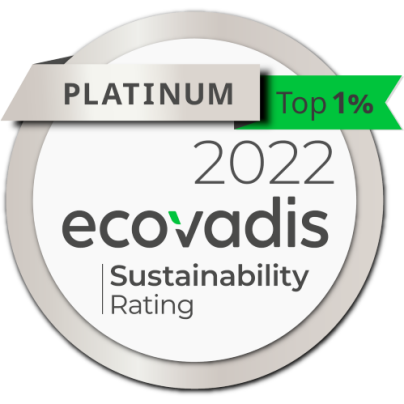
Our approach to governance
Our approach to governance begins with listening to our stakeholders to understand their expectations of us and the issues that matter to them. From here, we can define the topics that are “material” from a ESG perspective to our business and address them through our strategy and ESG approach. In 2022, we established a project team to understand the Corporate Sustainability Reporting Directive (CSRD), a forthcoming EU regulation. The CSRD explains the concept of a double materiality assessment. Double materiality now is assessing both the financial and ESG impact of the company to the world and from the world to the company.
In addition to governing our own operations, we strive to ensure a transparent, well-governed supply chain. By voluntarily participating in sustainability rating programs such as EcoVadis, we not only monitor our own ESG performance, but also ensure that our partners meet our expectations regarding issues such as environmental impact, health and safety, and human rights.
We also seek to promote good industry governance by working closely with our value chain partners and industry peers. Stahl is an active member of industry initiatives such as the Renewable Carbon Initiative (RCI) and the ZDHC Foundation. These collaborations provide a platform for Stahl to amplify its impact, as we work to create a better future for people and the planet.
At Stahl, we have a responsibility to our stakeholders to manage our business responsibly – as well as profitably – and to demonstrate business practices that are consistently ethical, transparent, and accountable. We believe this is the foundation of good governance.

Working with our partners to strengthen industry governance
Our industry collaborations and partnerships amplify our positive impact and allow us to touch more lives as part of a responsible value chain.
Stahl is a founding member of the Renewable Carbon Initiative (RCI), which aims to accelerate the transition to renewable feedstocks within the chemical value chain. In 2022, Stahl participated in several RCI working group activities, including those focused on renewable carbon content labeling and life cycle assessments. We also contributed to EU policy papers on renewable feedstocks.
A list of all our policies is available on our website.
All business partners must abide by applicable anti-corruption laws and regulations of the countries in which they operate.
Code of conduct for business partners
Stahl’s Whistleblower policy allows employees to report suspicious behavior, while offering the necessary guaranteed protection.
Whistleblower policy
We aim to have LCA data for 300 products by 2030. We are on track to meet the target, with 160 available by the end of 2022.
Assessing the impact of our products
Our main policies
Outlines what is expected of every person who works for Stahl.
Code of conduct for employees

